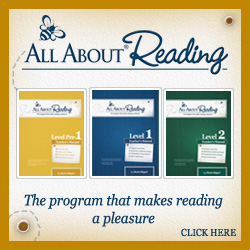Dyslexia
My journey toward helping students struggling with dyslexia began many years ago when my bright, happy son was diagnosed with dyslexia in 2nd grade. We expressed concern with both his Kindergarten and 1st grade teachers about his difficulties reading, but were told that "he'll catch up, don't worry." But I did worry. As a Speech Language Pathologist, having had extensive training in phonemic awareness and working in an elementary school, I knew it wasn't about him "catching up, " that he had some type of reading disorder. As he began 2nd grade, he started coming home and crying every night, begging me to not send him back to school. This was not like our son at all. He would not tell us why he didn't want to go, only that his teacher was mean and he didn't like school. We investigated further and a friend of his told her mother, who in turn told us some of the things the teacher was doing and saying to our son. Once he knew that we knew, he began to talk. He said the class was told to do silent reading and when he didn't know how to read a word, he would approach the teacher with his book and ask her how to read it. She would respond by yelling, telling him to "sound it out," and to go sit down. Of course, that bothered him, so he would cry. She would then yell at him to "stop crying" saying, "your Mommy is not here right now." Then she would keep him in from recess to read. Of course, he couldn't read, that was the whole problem and no amount of keeping him in practicing the same way was going to help him. He would go to the library with his classmates and check out chapter books, that of course he could not read, but wanted so badly to be able to read. After reporting the teacher to the principal and the state, we pulled him from that school and placed him at the school I was currently working in, which was out of state. There I was able to talk my colleagues into testing him. It was determined that yes, he was very smart and yes, he had a specific reading disability - dyslexia.
I have continued to educate myself on dyslexia over the years and have taken graduate credits to become a dyslexia consultant/screener. As a Speech Language Pathologist I am able to diagnose individuals to determine whether or not they have dyslexia and am able to provide the correct type of intervention. I provide academically relevant speech/language and dyslexia therapy to best help the student manage school and be successful communicators and readers.
Our son is now a senior in high school and doing well in school with appropriate accommodations. He is currently taking college courses and plans to attend college in the Fall. I do not want one more child to have to endure what he did. If, when looking at the chart below you think your child may have dyslexia, please do not hesitate to get him/her help. There is help.
I have continued to educate myself on dyslexia over the years and have taken graduate credits to become a dyslexia consultant/screener. As a Speech Language Pathologist I am able to diagnose individuals to determine whether or not they have dyslexia and am able to provide the correct type of intervention. I provide academically relevant speech/language and dyslexia therapy to best help the student manage school and be successful communicators and readers.
Our son is now a senior in high school and doing well in school with appropriate accommodations. He is currently taking college courses and plans to attend college in the Fall. I do not want one more child to have to endure what he did. If, when looking at the chart below you think your child may have dyslexia, please do not hesitate to get him/her help. There is help.


